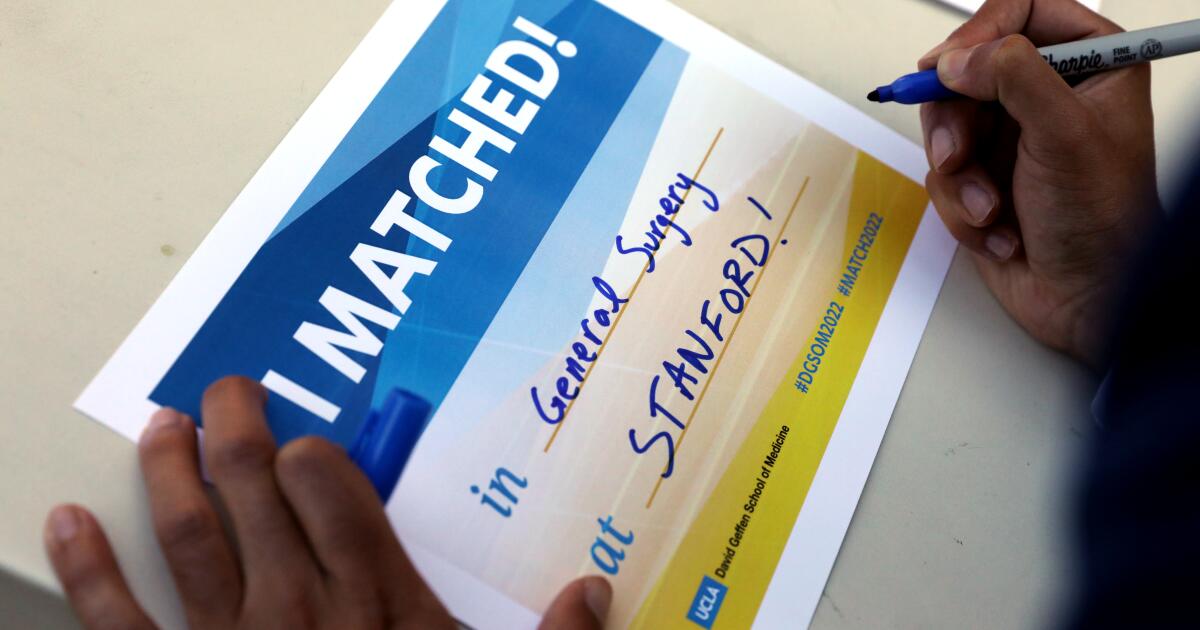New federal student loan policies emanating from the Trump administration threaten to reshape the landscape of professional education, particularly impacting California’s capacity to cultivate sufficient numbers of essential healthcare and legal professionals. This legislative overhaul, dubbed the “One Big Beautiful Bill Act” (OBBBA), introduces significant hurdles for aspiring doctors, nurses, and lawyers, potentially creating severe shortages in critical sectors across the state.
The OBBBA implements stringent modifications to federal student loan programs, making it considerably more challenging for individuals to pursue higher education, especially at public institutions like the University of California and Cal State. These changes encompass tightened eligibility criteria for Pell Grants and other forms of financial aid, alterations to repayment structures, and reduced annual and lifetime borrowing limits for students and their parents, collectively creating a less accessible pathway to professional degrees.
A critical consequence of the OBBBA is the severe cap on federal student loans for professional-school students, limiting annual borrowing to $50,000, with a total cap of $200,000 for a complete degree. This creates a substantial financial chasm when juxtaposed with the actual costs of programs, such as UC dental school, which can exceed $100,000 annually. Such a gap makes essential medical training and legal education financially untenable for many.
While private loans exist as an alternative, they often lack the crucial flexibility of federal student loans, particularly concerning repayment plans. Moreover, private lenders typically require a robust credit history or a co-signer, prerequisites that are often unattainable for the very students who require the most financial aid. This disparity further exacerbates the challenges faced by those from less affluent backgrounds, pushing them away from vital professions.
The ripple effect of these student loans policy changes extends beyond individual students, threatening to deepen societal inequalities. Just as certain tax provisions within the new law appear to favor the wealthy, these loan restrictions risk creating an educational divide, allowing only the financially secure to pursue professional degrees while potentially excluding talented, working-class young people from achieving their professional aspirations and contributing to the workforce.
In response to this looming crisis, California holds the potential to mitigate the federal impact through its own robust financial aid programs. By establishing an additional state-sponsored student loan program, perhaps under the existing California Student Aid Commission, the state could bridge the funding gaps left by the new federal rules. Though state budgets are often strained, these would largely be loans, with funds eventually returned with interest, offering a sustainable solution.
The demand for healthcare professionals in California continues to surge as the population ages. Given the extensive educational trajectory required for medical, nursing, and pharmacy students, immediate action is paramount. Existing shortages of primary care physicians, pediatricians, and particularly nurses—with UC San Francisco reporting a deficit of 36,000 nurses—underscore the urgency of preventing a further reduction in the number of qualified practitioners graduating today.
Beyond healthcare, the need for more legal professionals, especially in public interest and legal aid, is equally pressing. Many Californians facing eviction, employment disputes, or domestic violence lack access to essential legal assistance due to a dearth of lawyers willing or able to serve these communities. Deterring young people who are most likely to understand and aspire to these public service roles through restrictive financial aid policies is a significant setback for social justice.
Therefore, as the federal government implements policies that could dismantle existing educational pathways, California has a critical opportunity and responsibility to fortify its talent pipeline. By proactively investing in and expanding student financial aid programs, the state can ensure a steady supply of well-trained professionals, thereby safeguarding public health, upholding legal access, and fostering a thriving society for decades to come.






Leave a Reply